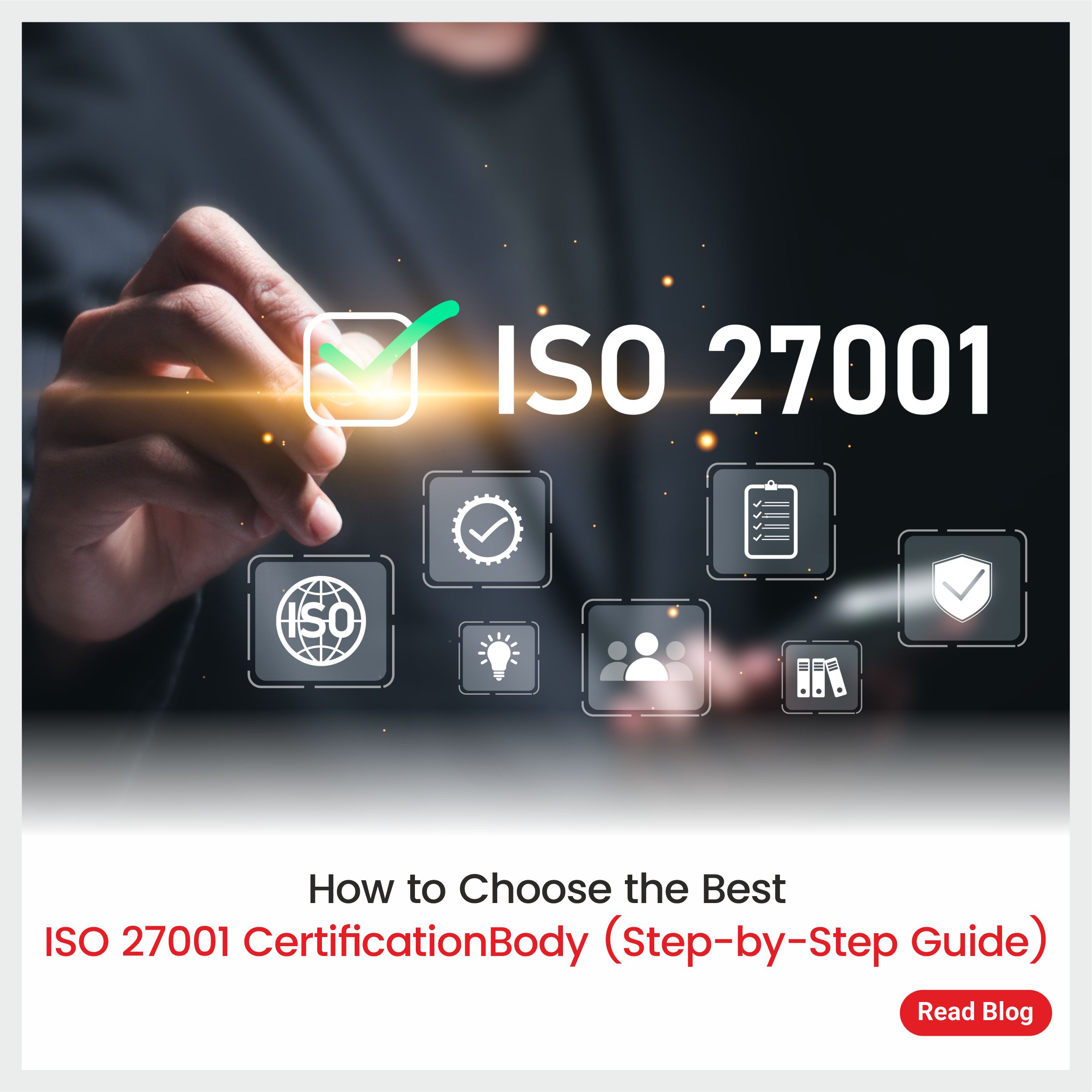Get ISO Certification for Automotive Industry
💡 Get Certified. Get Recognized. Grow Globally!
Boost your organization’s credibility, trust, and performance with internationally recognized ISO Certifications and Professional Trainings.
📜 ISO Certifications:
ISO 9001, ISO 14001, ISO 45001, ISO 22000, ISO 27001, ISO 27701, etc.
🎓 Training:
Lead Auditor Training, Lead Implementor Training, Internal Auditor Training, etc.
🔐 Infosec:
VAPT, GDPR, CMMI, SOC 1, SOC 2, HIPAA, HITRUST, PCI DSS, Cyber Security Audit, etc.
✨ Your Partner for a Sustainable Tomorrow ✨
Note:: The certification process begins with submitting a form and technical details, which are used to determine audit man-days. Our experts evaluate the information and share the cost and timelines with the client. We value your time and ensure quick responses, clear communication, and timely delivery of services.
How ISO Certification helpful for Automotive Industry?
The universally recognized ISO Certifications are helpful for almost each and every industry in the economic world. All the organizations belonging to the automotive industry are a major key driver for the industrial and economic development of any nation. ISO Certification is the best option for these industries to prove that they are providing world-class products and services to their customers. ISO Standards help you to showcase your commitment towards providing effective and efficient products and services to the world and also that their products and services are set as per the ISO standards. The ISO standards for the automotive industry provide the requirements for a standardized management system that will maintain consistency in delivering quality products and services for the customers.
Why does the automotive industry need ISO Certification?
Internationally recognized ISO Certifications are immensely needed to be achieved by automotive enterprises in order for them to emerge as efficient and effective management systems. In this regard, the standards published by the International Organization for Standardization (ISO) help these enterprises in establishing various management systems that lookout for the quality and safety of products, effectiveness of the processes, environmental friendliness of the business operations, security of the valuable information, and a lot more. So, there is an ultimate need for ISO Certification in the automotive industry to prove their effectiveness and efficiency to the customers.
One can feel the ultimate need for ISO Certifications for the automotive industry in each and every stage of their services. In that regard some points are highlighted below:
- Having ISO certification for the automotive industry will help you to get international recognition as it boosts your reputation all over the world.
- ISO Standards help the automotive industry to improve its organizational revenues and earn maximum profits for organizational benefits.
- ISO Certification is applicable to almost all types of automotive industries regardless of their size, type, or process.
Benefits of ISO certification for Automotive Industry
The globally recognized ISO Certifications play a crucial role in boosting and intensifying your automotive business. ISO standards for these industries are very beneficial, as they can satisfy the wants and wishes of the customer resulting in maximum profits for the organization. ISO Certification can help your organization to uplift your business in the global market.
Profits of Having ISO Certification for automotive industries are listed below:
- ISO Certification helps an organization to maintain environmental, health, and safety measures in the organization and reduce business-related risks and environmental threats in your organization.
- ISO certification for automotive business helps to provide a foundation for the effective and efficient delivery of products and services and gives high emphasis on balancing the usage of energy encouraging cost saving in the organization.
- ISO standard for the automotive industry is very profitable for your organization because it assesses and identifies all the risks related to your processes and finds a way to mitigate them from your organization.
- ISO Certification for the automotive industry reduces the reconstruction of the processes in your organization, which in return encourages cost savings in your organization.
Which standards or ISO certificates are required for the Automotive Industry?
The International Organization for Standardization publishes certain standards that help in implementing systematized management systems for delivering quality products and services as well as enabling compliance to the related legislations.
There are various standards that are applicable to automotive industries. These include ISO 9001, ISO 14001, IATF 16949, ISO 45001, ISO 50001, and ISO 27001 standards.
Let us understand in brief about all these standards:
ISO 9001 Standard
ISO 9001 is an internationally recognized standard that provides a framework for implementing Quality Management Systems (QMS) in an organization. Thus, ISO 9001 ensures that the quality of your products or services meets the customer’s expectations.
ISO 14001 Standard
ISO 14001 is a globally recognized standard that aims to provide a framework for implementing Environmental Management Systems (EMS) in your organization. This standard helps you to demonstrate how committed you are to reducing the environmental impacts.
ISO 45001 Standard
ISO 45001 is a universally required standard that is specially designed to provide a framework for the implementation of Occupational health and safety management systems (OHSMS). ISO 45001 certification helps your automotive industry to showcase your commitment towards the safety and wellbeing of employees, clients, and contractors by preventing or mitigating occupation-related injuries, disease, or even death.
ISO 27001 Standard
Achieving ISO 27001 certification for Information Safety Management Systems (ISMS) will help the automotive industries in demonstrating the company’s capability of handling valuable data and information. This ISO certification for the automotive industry also assists in managing cyber-attacks and data threats.
ISO 50001 Standard
ISO 50001 is an internationally recognized standard that helps in establishing and maintaining energy management systems (EnMS) in your organization. This standard works towards limiting your carbon footprint and saving on energy usage.
IATF 16949 Standard
IATF 16949 is a specially designed standard for implementing the International Automotive Task Force (IATF) in your organization. This basically, aims at maintaining process-based quality management systems with effective risk analysis in terms of continual improvement.
ISO Certification process for Automotive Industry
- Application & contract
- Audit team Assignment
- Document view
- Certification Audit Independent review
- Notification of Certification
- Surveillance audit
- Re-Assessment
The certification process goes further. click here to view the next steps to the ISO certification Process
ISO certifications have huge significance across a varied range of industries. They not only help to improve the processes within the organization but also ensure a smooth flow of services throughout the supply chain. Know more about Sis Certifications: https://www.youtube.com/c/SISCert
FAQs
There are various ISO standards that are applicable for the Automotive industry. The most commonly required ISO standards that are applicable for the automotive industry are as listed below:
- ISO 9001 Standard: Quality Management System.
- ISO 14001 Standard: Environmental Management System.
- ISO 45001 Standard: Occupational Health and Safety Management System.
- ISO 50001 Standard: Energy Management System.
- ISO 27001 Standard: Information Safety Management Systems
- IATF 16949: the International Automotive Task Force
Achieving ISO Certification is no big deal in today’s upgraded systems. The basic steps to become ISO Certificate for automotive industry are as follows:
- Firstly, you need to prepare all the relevant information about your company in a systematized way (It is always best and safe to hire a legal consultant.)
- Secondly, you need to document all the relevant information about your business.
- Thirdly, you have to implement all the documented information in your organization.
- Fourthly, get ready for the internal audits which are performed first during the certification process and then periodically after.
- Lastly, if the certifying body approves your management system then you will be awarded the required ISO standard.
An ISO Certificate is valid for 3 years. And during this time period of 3 years, a surveillance audit is conducted on an annual basis to ensure that ISO quality standards are being maintained by the organization.
An ISO Certificate is valid for 3 years. And during this time period of 3 years, a surveillance audit is conducted on an annual basis to ensure that ISO quality standards are being maintained by the organization.
Basically, when you approach a certifying body for ISO Certification and they approve your management systems and all your processes, they will then quote an amount for the certificate. Moreover, the cost for achieving ISO certification depends mostly on your organization, such as the no. of employees in your organization, No. of branches your organization has, and many more.
Missing Something?
We’re here to help you find exactly what you need—just let us know, and we’ll guide you in the right direction.
LATEST NEWS & BLOGS

India’s Digital Payments Story Runs on One Invisible Layer: PCI-DSS
India at the Center of the Digital Payments Boom With a boom in the digital economy, India finds itself at

How to Choose the Best ISO 27001 Certification Body (Step-by-Step Guide)
Data breaches can happen at any time, and regulators or clients can also act without warning. ISO/IEC 27001 certification is

7 Benefits of ISO Certification in India for Business Growth
Businesses claim to deliver QUALITY in today’s cut-throat market; however, there is no source to verify the claims. What if
